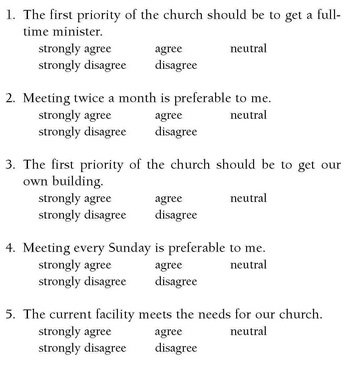Attitude, interests, opinions statements
Attitude, interests, opinions (AIO) statements are a type of market research survey designed to learn about consumers’ attitudes, interests, and opinions. AIO statements are one method of developing psychographic profiles of market segments. The survey technique involves creating a series of statements with which respondents are asked to agree or disagree. Market researchers often use AIO research to divide geographic or demographic groups into smaller segments. Different marketing strategies are then developed for each segment based on the groups’ attitudes, interests, and opinions. For example, among today’s college students aged 18–25 there are “traditionalists,” people who have generally accepted the attitudes and opinions of mainstream America. There are also “experimenters,” young people who are questioning traditional values and attitudes, exploring new interests, and open to new products and ideas. In addition there are “rejecters,” people who are critical about mainstream opinions and values, often looking to subcultures within society. Each of these groups has different needs and wants. If a segment is large enough and has sufficient purchasing power, marketers will develop distinct marketing mixes to appeal to their attitudes, interests, and opinions. Even within organizations there can be subsegments with different ideas. AIO surveys can be used to define groups with both common and different opinions and concerns. For example, a small church organization faced a typical set of problems: Should it expand services to every Sunday (they were only meeting twice a month), and should they first hire a full-time minister or build a church (they were meeting in a rented facility)? Using AIO statements like the ones below, the church group was able to identify the different “factions” within the organization.


See also DEMOGRAPHICS; MARKETING STRATEGY.
